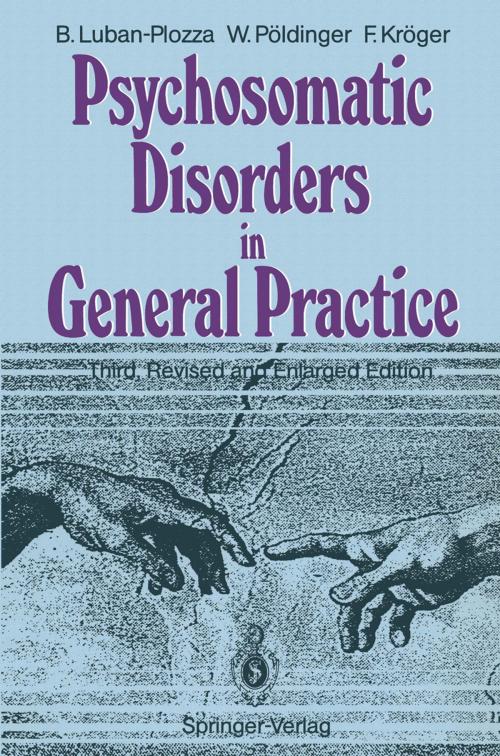Psychosomatic Disorders in General Practice
Nonfiction, Health & Well Being, Medical, Specialties, Family & General Practice, Psychology, Psychotherapy| Author: | G. Blythe, Boris Luban-Plozza, Walter Pöldinger, Friedebert Kröger | ISBN: | 9783642769405 |
| Publisher: | Springer Berlin Heidelberg | Publication: | December 6, 2012 |
| Imprint: | Springer | Language: | English |
| Author: | G. Blythe, Boris Luban-Plozza, Walter Pöldinger, Friedebert Kröger |
| ISBN: | 9783642769405 |
| Publisher: | Springer Berlin Heidelberg |
| Publication: | December 6, 2012 |
| Imprint: | Springer |
| Language: | English |
Closely geared to general practice yet without neglecting basic theory, this book has retained so much appeal among readers .as to warrant a third edition. We assume that the work has retained its place among the leading publications on psychosomatics because it embodies our strong interest in the 'here and now' of medical practice. The timing of this thoroughly revised and enlarged edition appears opportune as psychosomatic basic care and the medicine of dialogue acquire more meaning in daily routine practice, and as the need for basic information increases. We conceive psychosomatics to be an integral part of medicine. When we speak of 'psychosomatic disorders' in this book, our premise is that somatic and psychosocial aspects play an important role in their pathogenesis and course. This notion constitutes the very basis of what is understood as psychosomatic medical treatment. Such a point of departure calls for a consistent spirit of cooperation with regard to the problems involved. This alone satisfies the initial requirement of simultaneously considering both the somatic and psychosocial aspects of health and illness.
Closely geared to general practice yet without neglecting basic theory, this book has retained so much appeal among readers .as to warrant a third edition. We assume that the work has retained its place among the leading publications on psychosomatics because it embodies our strong interest in the 'here and now' of medical practice. The timing of this thoroughly revised and enlarged edition appears opportune as psychosomatic basic care and the medicine of dialogue acquire more meaning in daily routine practice, and as the need for basic information increases. We conceive psychosomatics to be an integral part of medicine. When we speak of 'psychosomatic disorders' in this book, our premise is that somatic and psychosocial aspects play an important role in their pathogenesis and course. This notion constitutes the very basis of what is understood as psychosomatic medical treatment. Such a point of departure calls for a consistent spirit of cooperation with regard to the problems involved. This alone satisfies the initial requirement of simultaneously considering both the somatic and psychosocial aspects of health and illness.















